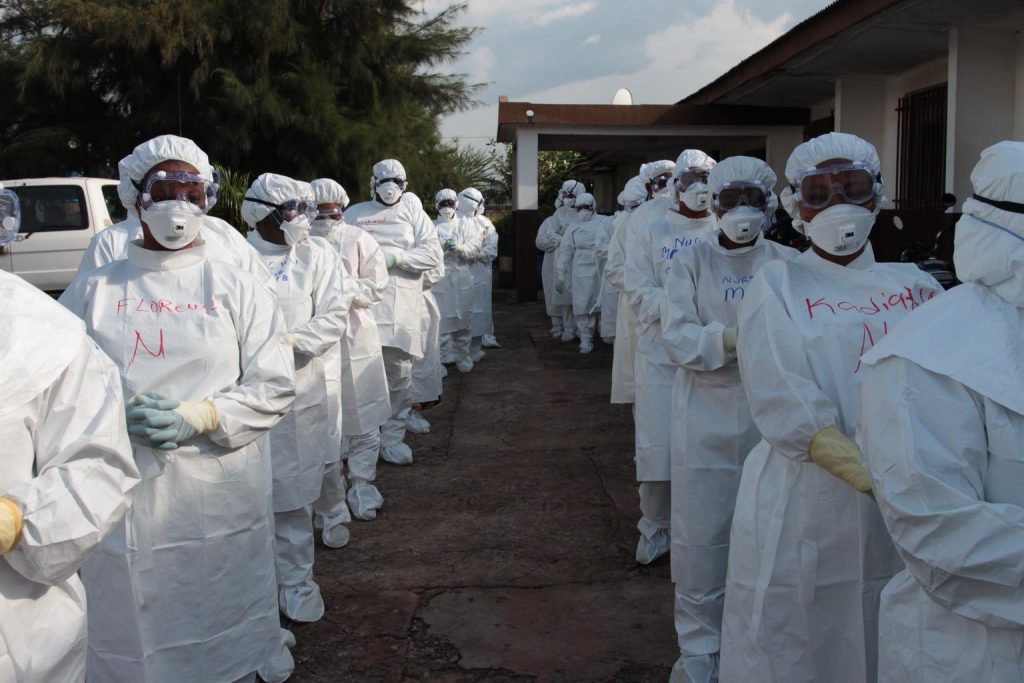Briefing
Ebola in Sierra Leone: ‘The scars still show. People are very angry’

On 7 November, health workers wearing personal protective equipment (PPE) stand in two queues outside the midwifery school where they are attending a training session on Ebola, in the city of Makeni, capital of Bombali District, in Northern Province. The staff members names the only way to identify them individually have been hand-written on their aprons. More than 100 clinical staff are being trained before being deployed to new Ebola Community Care Centres that are being set up in Bombali by UNICEF. The district is among the areas worst affected by the EVD outbreak in the country. This is the first time that the health workers are donning the protective gear (a combination of coveralls, heavy duty gloves and boots, goggles and aprons), worn as protection against exposure to the virus when they enter high-risk zones. At least 100 health staff have died this year from Ebola in Sierra Leone alone. The centres, which will help reduce overcapacity at Ebola treatment centres and holding units. will consist of eight-bed units and will include isolation areas, and are being built closer to communities.
On 7 November 2014, Sierra Leone is among countries in West Africa affected by the worst outbreak of Ebola virus disease (EVD) in history. UNICEF remains at the forefront of efforts to respond to and help curtail the outbreak, and is the lead agency for the United Nations on social mobilization in the Ebola response. In the three countries, UNICEF is helping the respective governments build, staff and equip Community Care Centres small structures where patients with Ebola symptoms are accommodated within their communities to break the cycle of transmission and where they will receive care by trained community health workers and is supporting critical community-based initiatives to strengthen the Ebola outbreak response at the local level. In Sierra Leone, UNICEF is supporting innovative education programmes and protection, health, water, sanitation and
Related content
Evidence review
Rapid evidence synthesis: Mpox community protection
This note presents a rapid synthesis of evidence related to community protection in countries affected by the mpox clade 1b outbreak. Synthesising evidence related to community protection for mpox Medline, Africa Journals Online and Global Index Medicus were searched. IFRC,…
SSHAP
2025
Report
Meeting report: The impact of global aid funding cuts on people and programmes in South Sudan
Report of a roundtable with government actors, academics, development partners and journalists in South Sudan on the sweeping impacts on people and programmes of aid cuts and multiple, intersecting crises.
Central and East Africa Hub
SSHAP
2025
Briefing
Key considerations: Home-based care for mpox in Central and East Africa
This brief outlines key considerations on health system requirements for safe and inclusive home-based care for mpox.
Central and East Africa Hub
SSHAP
2025
Question Bank
Tools
Questions bank for healthcare workers during infectious disease outbreaks
This question bank is a menu of qualitative questions related to healthcare workers’ knowledge, perceptions and practices during infectious disease outbreaks.
SSHAP
2025


